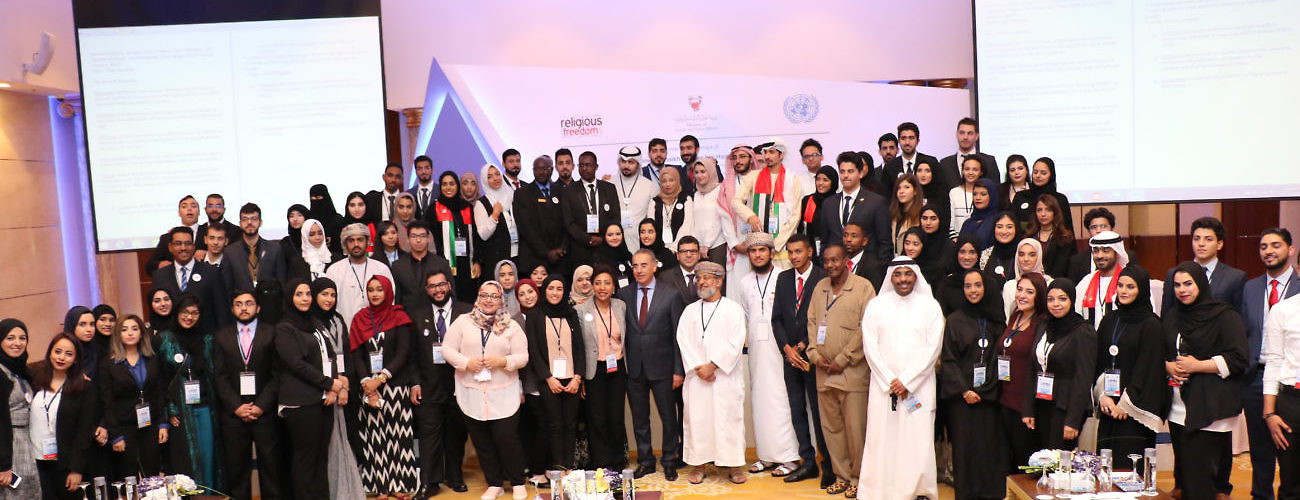Nejib Friji, Director of the International Peace Institute, Middle East & North Africa (IPI-MENA) office, cautioned students roleplaying as delegates from the UN, to bear in mind that “no cause deserves a single drop of blood,” when debating policy issues.
Mr. Friji delivered opening remarks to the Bahrain Universities Model United Nations (BUMUN) 2016 Conference on November 27, 2016. He told participating university students that diplomatic and political means were the best tools to overcome disputes. This was key advice for the students, as in a Model UN conference, students represent UN member states, and therefore often debate on behalf of, and engage with, diverse perspectives that may not mirror their personal viewpoints.
Mr. Friji encouraged the students to maintain their motivation to learn about the UN after the conference. They might draw inspiration for their own proposals for the UN system and its reform from the the final report of the Independent Commission on Multilateralism (ICM), he said.
The report offers concrete recommendations on ways to address specific challenges of the global era, he said. He also shared ICM Chair and Former Australian Prime Minister Kevin Rudd’s opinion on why the UN matters. “If it fails, falters or fades, it would fundamentally erode the stability of an already fragile global order,” he said, quoting Mr. Rudd.
Mr. Friji shared the history of the ICM project with the delegates, explaining that the UN requested IPI to convene the ICM with the aim of securing an independent review of the multilateral system. The resulting report emphasized the need to make the UN more effective for all our common interests.
Weighing in on whether the UN remains “fit for purpose” after 70 years, Mr. Friji described the UN as a resilient institution that “provides the best option for the international community to coordinate their response to a number of issues, not just global security ones.”
He urged the delegates to reflect on the fresh ideas offered by the ICM, based on a deep knowledge of the possibilities and limitations of today’s multilateral system.
Mr. Friji participated in a question and answer session with the students.
He concluded by praising the remarkable dynamism of the delegates, noting that with the considerable presence of female delegates, the student deliberations would be likely to reinforce the ICM objective “to ensure that the UN continues to respond to the policy challenges of our time,” and acts as “an architect for a better world.”








